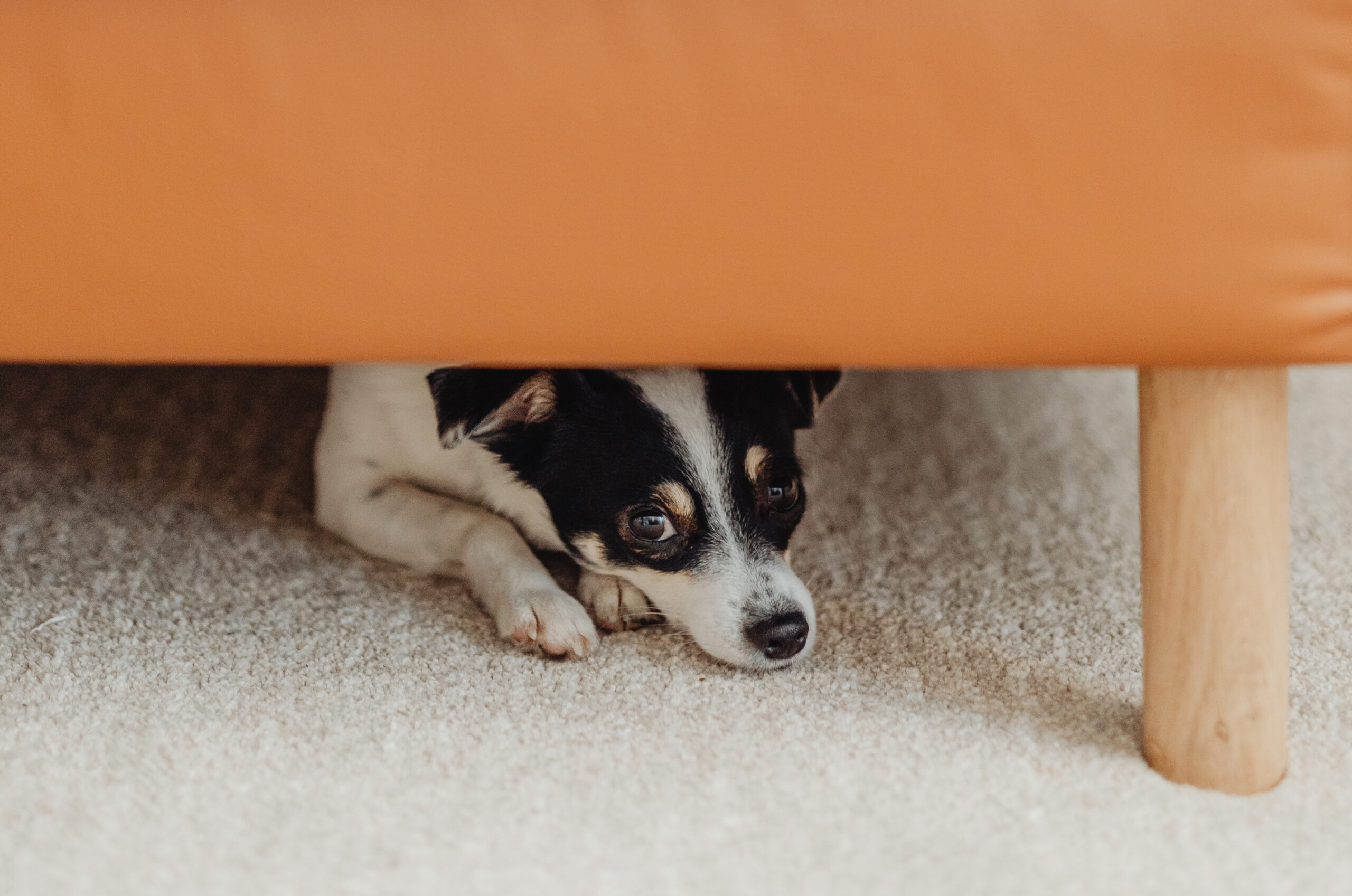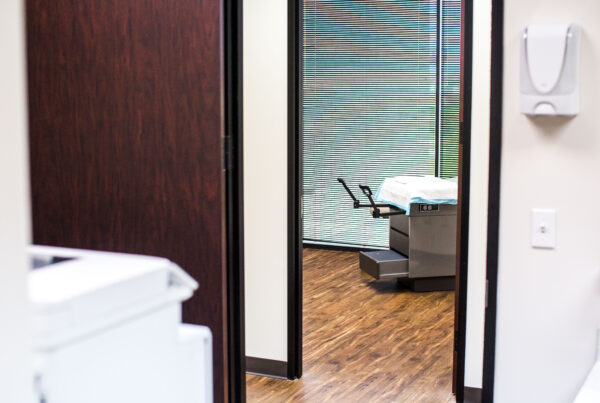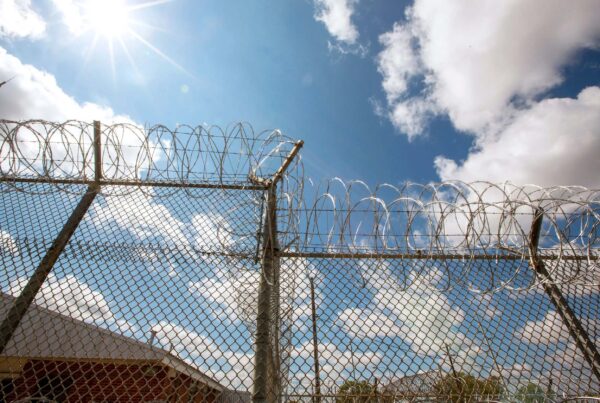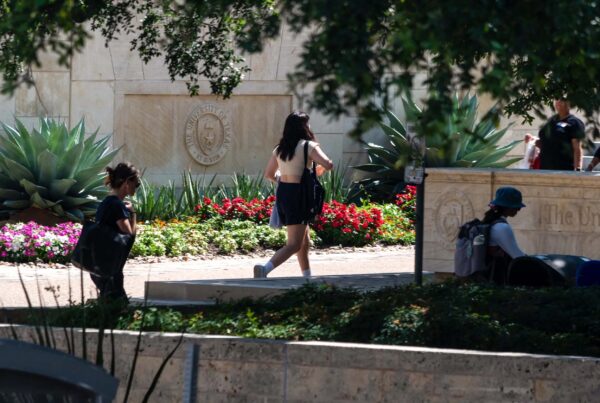There’s nothing quite like sitting in your yard or on a lawn, surrounded by loved ones, taking in the beauty of fireworks. But what about our four-legged loved ones? While we might get a sense of awe from the boom and sparkle, it can cause a lot of anxiety for our pets.
The Animal Defense League of Texas, an animal rescue organization, released a how-to guide on how to minimize the stress the fireworks season puts on our animals.
Nadia De La Garza, the organization’s development and marketing manager, provided some key take aways to help us help our pets through the fireworks:
It’s safe to assume that your pet is not going to enjoy the fireworks
With the heightened sense of hearing that most dogs have, even if your pet is hard of hearing, they could be bothered by other things that fireworks cause, such as the smell of smoke, the commotion of a lot of people around or an interruption in their routine.
“Noises are definitely the number one,” De La Garza said. “Maybe the change in schedule – the family might be getting ready for a trip – so making sure that whoever is going to be taking care of your pet is also aware of their triggers and making sure that they’re paying attention to the dog if it’s stressing out.
So just work around their triggers and try to make them feel as safe as possible.”
Every pet has different signs that it’s stressed out, so pay attention
Just like every person is different, so is every pet. As the pet’s family member, you’re the best person to know when they’re being triggered, as this usually shows up as a change in their behavior.
De La Garza says that you might know what this looks like for when fireworks are going off, as you’ve probably seen them get similarly stressed during a thunderstorm.
“So sometimes they’ll stop eating,” De La Garza said. “Sometimes they’ll start barking or howling. It could be excessive drooling or some shaking or trembling, but a lot of the times it’s just paying attention to your pet and they all react differently. … If they have some odd behavior it’s because something is making them uncomfortable.”
If you have a new pet, there are still ways to find out what their triggers are
The Animal Defense League of Texas is a rescue center, so naturally they encourage adoption. If you adopt, there’s a good chance the shelter has information on your pet that can prepare you for how they’ll react to fireworks and what you can do to soothe them.
Otherwise, you can turn to your veterinarian or the internet for additional tools.
“So we highly encourage adoption,” De La Garza said. “So just reach out to the agency where you adopted your pet from, and they might have some insight as to what triggers them and even provide you some advice as to how help them get through this season.
Reach out to your vet and they’ll be able to give you some enrichment tools. You can always go on TikTok or Google and get some great enrichment options for your pet.”
To prevent your pet from being triggered in the first place, preparation is key
In addition to learning more about what will cause anxiety for your pet and how that anxiety shows up in them, there are things you can do ahead of time to minimize or eliminate those stressors.
“Definitely consider your routine and consider changing it for that day,” De La Garza said. “So you might have a morning walk and then evening walk, so maybe that day take them out to the park as long as they are socialized, making sure that they’re friendly with other dogs. [Or] maybe taking them for a hike if they’re not. Getting them tired will hopefully put them in bed early so that they don’t even pay attention to the fireworks.”
Other times, such as being next door to a party where neighbors are setting off fireworks or living in a big city, the noise is just unavoidable. But even still, with proper preparation you can help make your pet feel safe, De La Garza said.
“When it comes to the Fourth of July, it’s really being mindful of planning around your family member,” De La Garza said. “And of course that also includes our pets. Being mindful: ‘Okay, well if I am gonna be out celebrating, let me go ahead and leave the TV on. Let me leave the radio on. Let me move our pets’ kennel away from windows and doors, maybe put them somewhere where the noise is pretty close to gone, or at least minimized. So really just thinking of ways to help the pet if you’re gonna be out of the home.
But our biggest recommendation is if you know your pet is scared, and you might know because before fireworks, there’s probably thunderstorms that they’ve experienced, just planning for your pet as well. So maybe staying home with them would be the best thing to do.”
Dogs aren’t the only pets who get scared
While dogs seem to be the most vocally opposed to fireworks, cats, birds, hamsters and even lizards get scared, too. De La Garza has some suggestions for those pets, but also says that your veterinarian will have more specialized advice, especially for more exotic animals.
“Cats are definitely going to always do their own thing and hide,” De La Garza said. “Typically they might stay away from their kennels. They might just go to a quiet place, like a closet. So they’ll kind of do their own thing. They’re very independent compared to dogs.
And then of course, your hamsters and your reptile friends, I would just say move them. Move their cages away from windows, maybe cover their cages so that they don’t see the light. But just be mindful of keeping them away from anything that can elevate that sound and put them in a room where it’s quiet and nice.”
Make sure your pet is microchipped, in case they run away
Worst case scenario, and unfortunately this happens every year, pets do run away.
In fact, according to a source from The Independent, the number of runaway pets nearly doubles around the holidays.
The good thing for adopters, is that a lot of the time your pet will come microchipped. But that doesn’t mean your dog is necessarily trackable. De La Garza said there are some additional measures you’ll have to take to make sure you can find your pet using their microchip.
“The animal has to be taken to a place where that microchip can be scanned in order for the pet to be returned back to you,” De La Garza said. “So, one, making sure your pet is microchipped. Two, making sure that it’s registered to the owner and that the emergency contact, the information, is actually correct.
Also secure your fences. So if at any point you’re gonna leave your four-legged pal outside just to take the potty break, make sure that there’s no way for them to escape. So bring them back in after they do their business, bring them back in right away. And again, make sure that they’re safe inside.”














